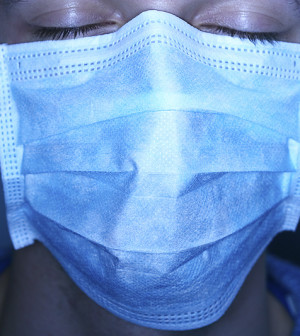- 8 Ways to Increase Dopamine Naturally
- 7 Best Breads for Maintaining Stable Blood Sugar
- Gelatin vs. Collagen: Which is Best for Skin, Nails, and Joints?
- The Long-Term Effects of Daily Turmeric Supplements on Liver Health
- Could Your Grocery Store Meat Be Causing Recurring UTIs?
- Are You Making This Expensive Thermostat Error This Winter?
- Recognizing the Signs of Hypothyroidism
- 10 Strategies to Overcome Insomnia
- Could Artificial Sweeteners Be Aging the Brain Faster?
- Techniques for Soothing Your Nervous System
Hepatitis B Screening Proposed for All High-Risk Adults


Adults at high risk for hepatitis B should be screened for the viral infection, according to a draft recommendation from the U.S. Preventive Services Task Force.
Although most people born in the United States are vaccinated against hepatitis B, there are still nearly 1 million infected people in the United States. Of those with chronic hepatitis B infection, 15 percent to 25 percent die from serious liver disease or liver cancer.
“The good news is that evidence shows we can catch the disease early in many people who are already infected by screening for hepatitis B virus infection in persons at high risk for infection,” task force member Dr. Douglas Owens, a professor of medicine at Stanford University, said in a task force news release. “And treatment can help prevent liver cancer in people who have chronic hepatitis B infection.”
Screening consists of a blood test.
Based on a review of existing evidence, the task force concluded the following people should be screened for hepatitis B:
- Anyone born in countries or regions with a high rate of hepatitis B infection, including Africa, Southeast Asia, the Middle East, Eastern Europe and the northern countries in South America
- People born in the United States who were not vaccinated against hepatitis B in infancy whose parents were born in areas with a high rate of hepatitis B infection
- Those who are HIV-positive
- IV drug users
- Gay and bisexual men
- People with a weak immune system
- Those undergoing treatment for kidney failure
Vaccination remains the best way to prevent hepatitis B infection, the panel pointed out.
“The United States has universal vaccination of all infants at birth, catch-up vaccination of adolescents and vaccination of high-risk groups. Fortunately, most people in the U.S. are no longer at risk of getting hepatitis B,” task force member Dr. Mark Ebell said in the news release.
“Because some countries have high rates of [hepatitis B] infection, it is important for immigrants from those countries and their doctors to be aware of their risk status and screen them if appropriate,” he added.
Public comments on this draft proposal are being accepted until March 11. The task force — an independent, advisory group of health care experts — will consider these comments in developing its final statement.
More information
The World Health Organization provides more information on hepatitis B.
Source: HealthDay
Copyright © 2026 HealthDay. All rights reserved.










